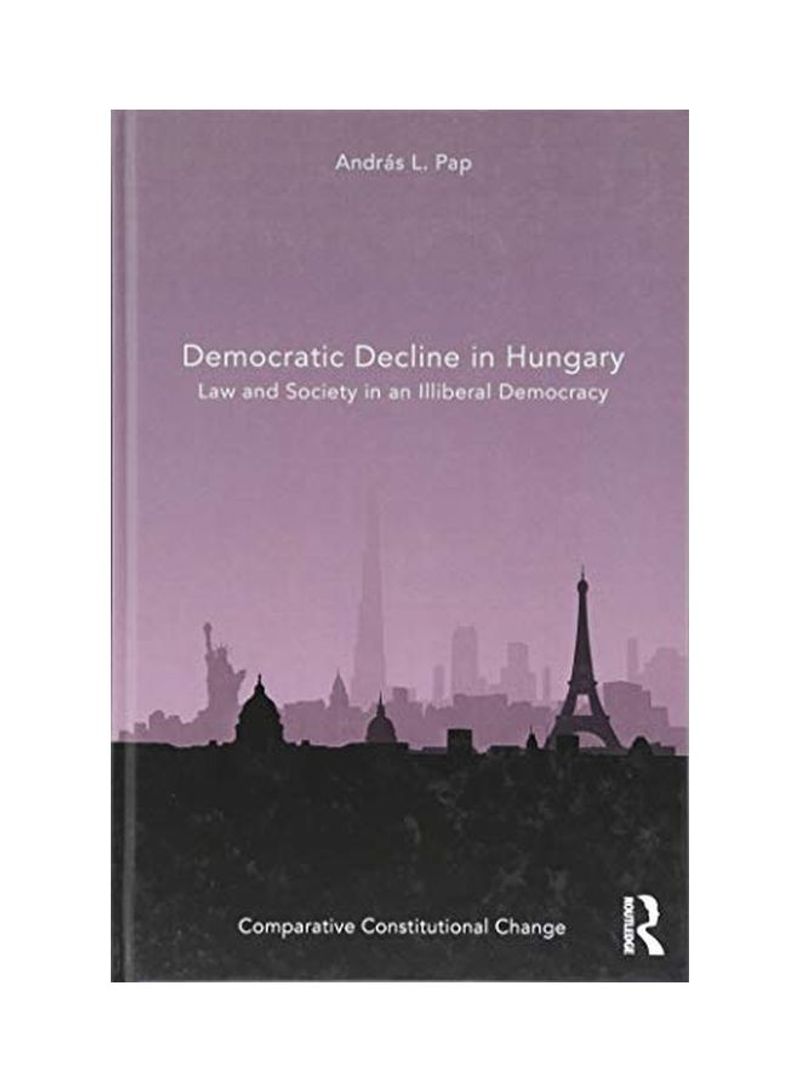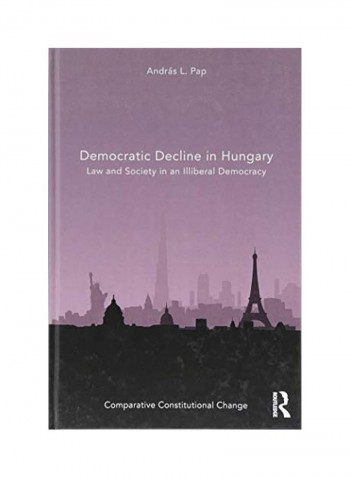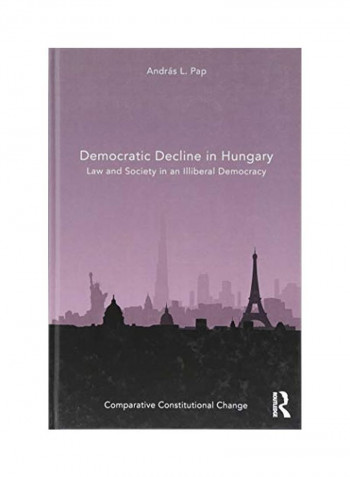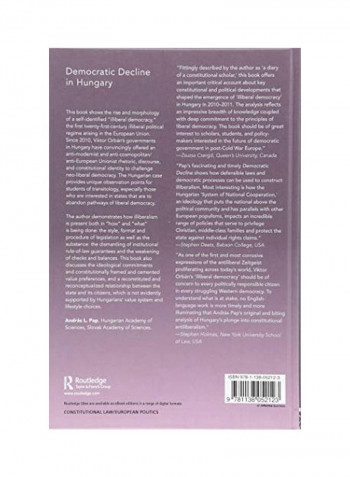Democratic Decline In Hungary: Law And Society In An Illiberal Democracy Hardcover
Recommend
Sort by
Rating
Date
Specifications
Country of Origin
India
Author 1
András L. Pap
Book Description
This book shows the rise and morphology of a self-identified `illiberal democracy', the first 21st century illiberal political regime arising in the European Union. Since 2010, Viktor Orban's governments in Hungary have convincingly offered an anti-modernist and anti-cosmopolitan/anti-European Unionist rhetoric, discourse and constitutional identity to challenge neo-liberal democracy. The Hungarian case provides unique observation points for students of transitology, especially those who are interested in states which are to abandon pathways of liberal democracy.The author demonstrates how illiberalism is present both in `how' and `what' is being done: the style, format and procedure of legislation; as well as the substance: the dismantling of institutional rule of law guarantees and the weakening of checks and balances. The book also discusses the ideological commitments and constitutionally framed and cemented value preferences, and a reconstituted and re-conceptualized relationship between the state and its citizens, which is not evidently supported by Hungarians' value system and life-style choices.
ISBN-10
1138052124
ISBN-13
9781138052123
Language
English
Publisher
Taylor & Francis Ltd
Publication Date
22 Aug 2017
About the Author
Andras L. Pap is Research Chair and Head of Department for the Study of Constitutionalism and the Rule of Law, Hungarian Academy of Sciences Centre for Social Sciences, Institute for Legal Studies; he is SASPRO-Marie Sklodowska-Curie Fellow, Institute of Sociology, Slovak Academy of Sciences, Bratislava, Slovakia; Professor of Law, Law Enforcement Faculty, National University of Public Service; Recurrent Visiting (Adjunct) Professor, Nationalism Studies Program, Central European University, Budapest, Hungary.
Editorial Review
Fittingly described by the author as `a diary of a constitutional scholar,' this book offers an important critical account about key constitutional and political developments that shaped the emergence of `illiberal democracy' in Hungary in 2010-11. The analysis reflects an impressive breadth of knowledge coupled with deep commitment to the principles of liberal democracy. The book should be of great interest to scholars, students, and policy-makers interested in the future of democratic government in post-Cold War Europe.




